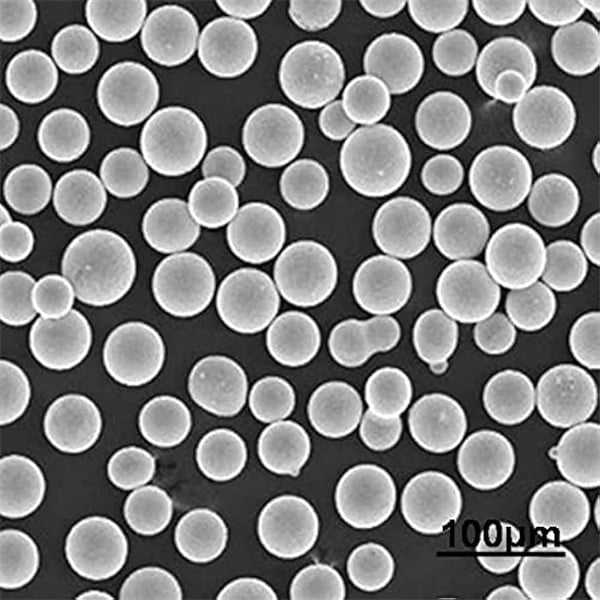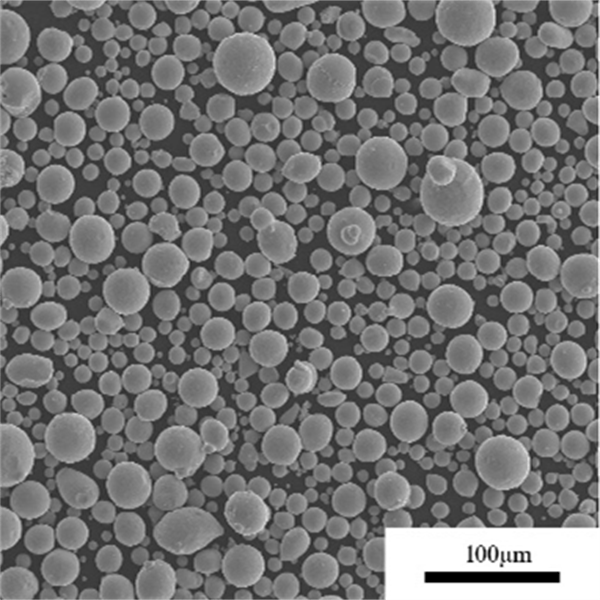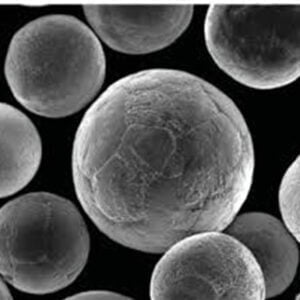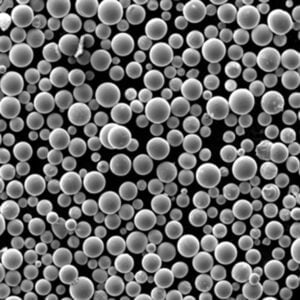High-Temperature Build Bed Assembly
Table of Contents
High-temperature build bed assembly is a critical component in many industrial applications, particularly in 3D printing and additive manufacturing. This process involves using advanced materials capable of withstanding high temperatures to ensure precise, reliable, and efficient production. In this article, we’ll dive into the nuances of high-temperature build bed assembly, explore various metal powder models, and provide detailed insights into their applications, properties, and suppliers. Let’s get started!
Overview of High-Temperature Build Bed Assembly
High-temperature build bed assembly is an integral part of advanced manufacturing processes, where the build platform must endure extreme temperatures. This is essential in sectors such as aerospace, automotive, and medical device manufacturing, where high precision and material performance are crucial. The materials used for these assemblies must offer excellent thermal stability, mechanical strength, and resistance to thermal expansion.
Key Details:
- Purpose: To provide a stable and precise platform for high-temperature manufacturing processes.
- Materials Used: High-temperature alloys, ceramics, and composites.
- Applications: Aerospace components, automotive parts, medical devices, and industrial machinery.

Metal Powders for High-Temperature Build Bed Assembly
Let’s explore some specific metal powders used in high-temperature build bed assemblies. These powders are selected for their superior thermal and mechanical properties.
| Metal Powder | Composition | Properties | Applications |
|---|---|---|---|
| Inconel 625 | Nickel-Chromium Alloy | Excellent corrosion resistance, high strength | Aerospace, chemical processing |
| Inconel 718 | Nickel-Chromium Alloy with Molybdenum and Niobium | High yield strength, good weldability | Aerospace, turbine engines |
| Ti-6Al-4V (Titanium Grade 5) | Titanium-Aluminum-Vanadium Alloy | High strength-to-weight ratio, corrosion resistance | Aerospace, biomedical implants |
| Stainless Steel 316L | Iron-Chromium-Nickel-Molybdenum Alloy | Excellent corrosion resistance, good mechanical properties | Marine applications, chemical processing |
| Maraging Steel | Iron-Nickel-Cobalt-Molybdenum Alloy | Ultra-high strength, good toughness | Tooling, high-performance parts |
| Aluminum AlSi10Mg | Aluminum-Silicon-Magnesium Alloy | Good casting properties, lightweight | Automotive, aerospace |
| Cobalt-Chrome (CoCr) | Cobalt-Chromium-Molybdenum Alloy | High wear resistance, biocompatibility | Medical implants, dental prosthetics |
| Hastelloy X | Nickel-Chromium-Molybdenum-Iron Alloy | Excellent high-temperature strength, oxidation resistance | Gas turbines, petrochemical processing |
| Haynes 282 | Nickel-Iron-Chromium Alloy | High creep strength, thermal stability | Aerospace, industrial gas turbines |
| Nimonic 90 | Nickel-Chromium-Cobalt Alloy | High strength, oxidation resistance | Turbine blades, exhaust valves |
In-Depth Descriptions of Metal Powders
- Inconel 625
- Composition: Predominantly nickel (58% minimum), with chromium, iron, and molybdenum.
- Properties: Known for excellent resistance to oxidation and corrosion, high strength, and toughness. It performs well in high-temperature environments and is resistant to pitting and crevice corrosion.
- Applications: Ideal for aerospace components, marine environments, chemical processing, and nuclear reactors.
- Inconel 718
- Composition: Nickel-based with significant amounts of chromium, iron, molybdenum, and niobium.
- Properties: Exhibits high yield, tensile, and creep-rupture properties at temperatures up to 700°C. It is also known for its weldability and resistance to post-weld cracking.
- Applications: Extensively used in the aerospace industry for turbine engines, as well as in the oil and gas sector.
- Ti-6Al-4V (Titanium Grade 5)
- Composition: Titanium alloyed with 6% aluminum and 4% vanadium.
- Properties: Offers an exceptional strength-to-weight ratio, making it lightweight yet incredibly strong. It also has excellent corrosion resistance and biocompatibility.
- Applications: Commonly used in aerospace components, biomedical implants, and high-performance automotive parts.
- Stainless Steel 316L
- Composition: Iron alloyed with chromium, nickel, and molybdenum.
- Properties: Provides excellent corrosion resistance, especially against chlorides and other industrial solvents. It also has good mechanical properties and weldability.
- Applications: Utilized in marine applications, chemical processing equipment, and medical devices.
- Maraging Steel
- Composition: Iron alloyed with nickel, cobalt, and molybdenum.
- Properties: Known for its ultra-high strength and good toughness, it can be easily machined and welded.
- Applications: Used in tooling, high-performance parts, and aerospace components.
- Aluminum AlSi10Mg
- Composition: Aluminum alloyed with silicon and magnesium.
- Properties: Offers good casting properties, lightweight, and high thermal conductivity. It also has decent mechanical properties and corrosion resistance.
- Applications: Primarily used in the automotive and aerospace industries.
- Cobalt-Chrome (CoCr)
- Composition: Cobalt alloyed with chromium and molybdenum.
- Properties: High wear resistance, excellent biocompatibility, and good mechanical properties at high temperatures.
- Applications: Ideal for medical implants, dental prosthetics, and aerospace components.
- Hastelloy X
- Composition: Nickel-based alloy with chromium, molybdenum, and iron.
- Properties: Known for its high-temperature strength, excellent oxidation resistance, and fabricability.
- Applications: Widely used in gas turbines, petrochemical processing, and industrial furnaces.
- Haynes 282
- Composition: Nickel-iron-chromium alloy with molybdenum and titanium.
- Properties: Exhibits high creep strength and thermal stability, making it suitable for high-temperature applications.
- Applications: Used in aerospace and industrial gas turbines.
- Nimonic 90
- Composition: Nickel alloyed with chromium and cobalt.
- Properties: High strength and excellent oxidation resistance, maintaining its properties at elevated temperatures.
- Applications: Commonly used in turbine blades, exhaust valves, and other high-temperature components.
Applications of High-Temperature Build Bed Assembly
High-temperature build bed assemblies are crucial in various industries due to their ability to maintain stability and precision under extreme conditions.
| Industry | Application | Description |
|---|---|---|
| Aerospace | Turbine Engines | Components must withstand high temperatures and stress. |
| Automotive | Engine Parts | Requires high thermal stability and mechanical strength. |
| Medical Devices | Implants and Prosthetics | Biocompatibility and precision are essential. |
| Chemical Processing | Reactor Components | Must resist corrosion and high temperatures. |
| Marine | Shipbuilding and Offshore Equipment | Components must withstand harsh environments. |
| Industrial Machinery | High-Temperature Furnaces | Requires materials that maintain integrity at high temperatures. |
Specifications, Sizes, Grades, and Standards
Understanding the specifications, sizes, grades, and standards is essential for selecting the right material for high-temperature build bed assembly.
| Metal Powder | Specifications | Sizes | Grades | Standards |
|---|---|---|---|---|
| Inconel 625 | ASTM B443, AMS 5599 | Powder size: 15-45 µm | NA | ASME SB-443 |
| Inconel 718 | AMS 5662, ASTM B637 | Powder size: 15-45 µm | NA | ASME SB-637 |
| Ti-6Al-4V | ASTM F136, AMS 4907 | Powder size: 15-45 µm | Grade 5 | ISO 5832-3 |
| Stainless Steel 316L | ASTM A240, AMS 5507 | Powder size: 15-45 µm | NA | EN 1.4404 |
| Maraging Steel | AMS 6514, ASTM A538 | Powder size: 15-45 µm | Grade 300 | DIN 1.2709 |
| Aluminum AlSi10Mg | ASTM F3318, ISO 20160 | Powder size: 15-45 µm | NA | EN AC-43000 |
| Cobalt-Chrome (CoCr) | ASTM F1537, ISO 5832-4 | Powder size: 15-45 µm | NA | EN 1.3912 |
| Hastelloy X | AMS 5536, ASTM B572 | Powder size: 15-45 µm | NA | UNS N06002 |
| Haynes 282 | AMS 5915, ASTM B637 | Powder size: 15-45 µm | NA | UNS N07208 |
| Nimonic 90 | BS HR 6015, ASTM B637 | Powder size: 15-45 µm | NA | UNS N07090 |
Suppliers and Pricing Details
Knowing where to source materials and understanding the pricing can significantly impact project planning and budgeting.
| Supplier | Metal Powder | Price per kg | Location | Contact Information |
|---|---|---|---|---|
| ATI Metals | Inconel 625 | $200 | USA | [email protected] |
| Carpenter Technology | Inconel 718 | $180 | USA | [email protected] |
| Praxair Surface Technologies | Ti-6Al-4V | $300 | USA | praxair.com |
| Hoganas AB | Stainless Steel 316L | $100 | Sweden | [email protected] |
| Sandvik Osprey | Maraging Steel | $250 | UK | materials.sandvik |
| AP&C | Aluminum AlSi10Mg | $120 | Canada | advancedpowders.com |
| HC Starck | Cobalt-Chrome (CoCr) | $350 | Germany | hcstarck.com |
| Haynes International | Hastelloy X | $220 | USA | haynesintl.com |
| Ametek Specialty Metal Products | Haynes 282 | $260 | USA | ametekmetals.com |
| VDM Metals | Nimonic 90 | $230 | Germany | vdm-metals.com |
Advantages and Disadvantages of High-Temperature Build Bed Assembly
Evaluating the pros and cons of high-temperature build bed assemblies helps in understanding their applicability and limitations.
| Advantages | Disadvantages |
|---|---|
| High Precision and Stability | High Cost |
| Ability to Handle Extreme Temperatures | Complex Maintenance |
| Enhanced Material Properties | Limited Material Availability |
| Versatile Applications | Specialized Equipment Needed |
| Improved Product Quality | Long Lead Times |
Application of High-Temperature Build Bed Assembly
High-temperature build bed assemblies are used in a variety of high-stakes applications due to their exceptional properties. Let’s delve into some specific examples.
Aerospace Industry
In the aerospace sector, components such as turbine blades and engine parts must withstand extreme temperatures and mechanical stresses. The materials used in high-temperature build bed assemblies, like Inconel 718 and Ti-6Al-4V, offer the necessary strength and thermal stability. For instance, Inconel 718 is preferred for its high yield and tensile strength, while Ti-6Al-4V provides a superior strength-to-weight ratio, crucial for aerospace applications.
Automotive Industry
The automotive industry relies on high-temperature build bed assemblies for engine parts, exhaust systems, and other components exposed to high heat. Materials like Stainless Steel 316L and Aluminum AlSi10Mg are commonly used due to their corrosion resistance and lightweight properties. Stainless Steel 316L, for example, is ideal for exhaust systems as it resists high-temperature oxidation and corrosion.
Medical Devices
Medical implants and prosthetics often require materials that are biocompatible and capable of withstanding body temperatures without degrading. Cobalt-Chrome (CoCr) is a popular choice in this domain due to its biocompatibility and high wear resistance, making it suitable for joint replacements and dental implants.
Chemical Processing
In chemical processing, reactor components and other equipment must resist corrosive environments and high temperatures. Hastelloy X is a prime example, known for its excellent high-temperature strength and oxidation resistance, making it ideal for such harsh conditions.
Marine Applications
Marine environments pose challenges such as saltwater corrosion and extreme conditions. Stainless Steel 316L is frequently used in marine applications due to its superior corrosion resistance and durability, ensuring long-lasting performance in harsh marine conditions.
Industrial Machinery
High-temperature furnaces and other industrial machinery require materials that can maintain integrity at elevated temperatures. Haynes 282 and Maraging Steel are commonly used in these applications for their high creep strength and mechanical stability.

FAQ
To address common questions and provide further clarity, here is a detailed FAQ section.
| Question | Answer |
|---|---|
| What is a high-temperature build bed assembly? | It is a platform used in high-temperature manufacturing processes to ensure stability and precision. |
| Why are specific metal powders used in high-temperature applications? | These powders offer superior thermal stability, mechanical strength, and resistance to thermal expansion. |
| What are the key industries using high-temperature build bed assemblies? | Aerospace, automotive, medical devices, chemical processing, marine, and industrial machinery. |
| How do I choose the right metal powder for my application? | Consider factors like temperature resistance, mechanical strength, corrosion resistance, and specific industry standards. |
| What are the advantages of using high-temperature build bed assemblies? | They provide high precision, handle extreme temperatures, enhance material properties, and improve product quality. |
| What are the common disadvantages? | High cost, complex maintenance, limited material availability, specialized equipment needed, and long lead times. |
| Where can I source high-temperature metal powders? | Suppliers like ATI Metals, Carpenter Technology, Praxair Surface Technologies, and others. |
| What standards should I look for when selecting metal powders? | Standards like ASTM, AMS, ISO, EN, and UNS ensure quality and suitability for specific applications. |
| Can high-temperature build bed assemblies be customized? | Yes, they can be tailored to specific requirements depending on the application and material properties needed. |
| Are there any recent advancements in high-temperature build bed assembly? | Yes, ongoing research focuses on improving material properties and developing new alloys for better performance. |
Conclusion
High-temperature build bed assembly plays a pivotal role in advanced manufacturing processes, ensuring the precision, stability, and quality of components subjected to extreme conditions. By understanding the various metal powders, their properties, applications, and the pros and cons, manufacturers can make informed decisions to enhance their production capabilities.
Whether you’re in aerospace, automotive, medical devices, or any other industry requiring high-temperature applications, selecting the right materials and suppliers is crucial. Keep in mind the specifications, standards, and industry requirements to achieve the best results for your high-temperature build bed assembly needs.
Stay informed about the latest advancements and continuously evaluate your material choices to stay ahead in the competitive manufacturing landscape.
Share On
MET3DP Technology Co., LTD is a leading provider of additive manufacturing solutions headquartered in Qingdao, China. Our company specializes in 3D printing equipment and high-performance metal powders for industrial applications.
Inquiry to get best price and customized Solution for your business!
Related Articles
About Met3DP
Recent Update
Our Product
CONTACT US
Any questions? Send us message now! We’ll serve your request with a whole team after receiving your message.

Metal Powders for 3D Printing and Additive Manufacturing
COMPANY
PRODUCT
cONTACT INFO
- Qingdao City, Shandong, China
- [email protected]
- [email protected]
- +86 19116340731

















